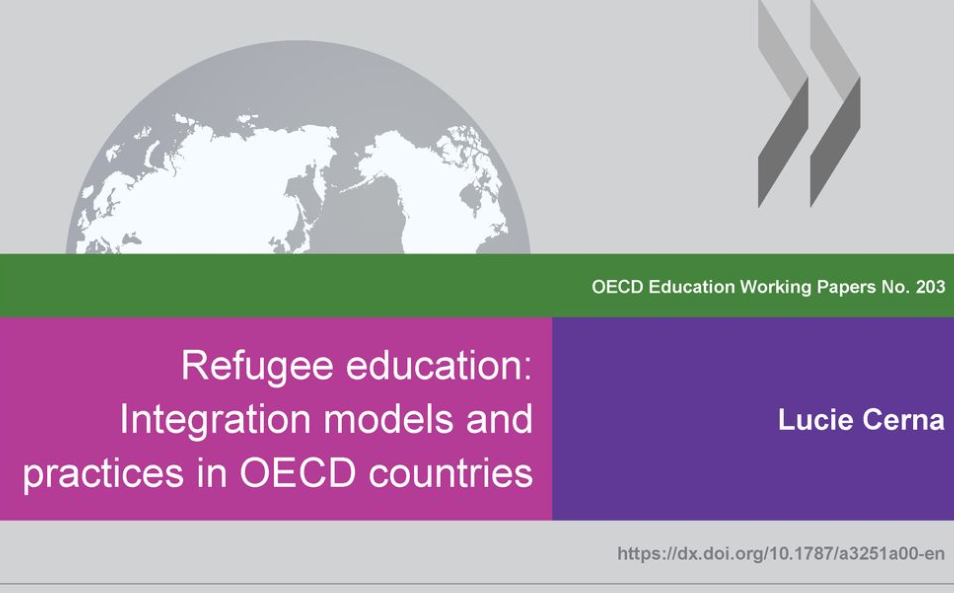Refugee education: Integration models and practices in OECD countries
Published:
The OECD Education Working Papers No.203, ‘Refugee education: Integration models and practises in OECD countries’, published on 13 May 2019, draws attention to the critical situation in which refugees around the globe find themselves in, leaving many refugee students vulnerable to isolation in education systems. The paper highlights that failure to integrate all students, is harmful for students’ social and emotional well-being whilst it also has detrimental effects for the future labour market. Coupled with a significant shortage of research focusing explicitly on refugee children and youth through the perspective of education, as well as cross-country research and in-depth surveys on refugees, has big disadvantages for refugee students. Therefore, the paper suggests that a holistic approach of integration in education should be adopted across education systems, to meet the learning, social and emotional needs of all refugee students.
The paper proposes several policy pointers for the integration of refugee students into the education system such as:
- Through a holistic model, policies should focus on the learning, social and emotional needs of refugee students
- Providing access to all levels of quality education including pre-primary and post-compulsory to all refugee children
- Introducing early assessment and individualised plans to meet the well-being of refugee students and offering flexible learning pathways for older children
- Providing language support through sufficient resources and using the mother tongue language to communicate with fellow peers
- Offering teacher training and professional development to respond better to the needs of refugee pupils
- Implementing the whole-school and the whole-community approaches for the successful integration of all refugees into schools and wider society
The paper highlighted that most OECD countries offer access to compulsory schooling for refugee and migrant students, however challenges arise in providing pre-school and post-compulsory education to refugee and migrant individuals. Hence, in Belgium, public early childhood and care agencies are available in centres across the Flanders and Brussels-Capital regions offering services for these families. Alternatively in Finland in 2016, ‘skills centres’ were introduced to offer combined vocational education and training to refugees over 17 years old.
ETUCE strongly believes that inclusive education is key to combatting the marginalisation and stigmatisation of refugee students in society. Therefore, appropriate and sustainable investment must be provided to support the integration of migrants and refugees in education, as well as adequate initial and continuous training of teachers and education staff to learn about inclusive teaching applicable for multicultural learning environments. This is reinforced in the joint ETUCE, EFEE and ESHA EU CONVINCE Project - EU Common Values Inclusive Education (2018-2020) and the joint ETUCE and EFEE project on the European Sectoral Social Partners in Education Promoting Effective Integration of Migrants and Refugees in Education (2017-2019), which draw attention to the importance of providing equal opportunities and inclusive education systems for all students including migrant and refugee pupils.